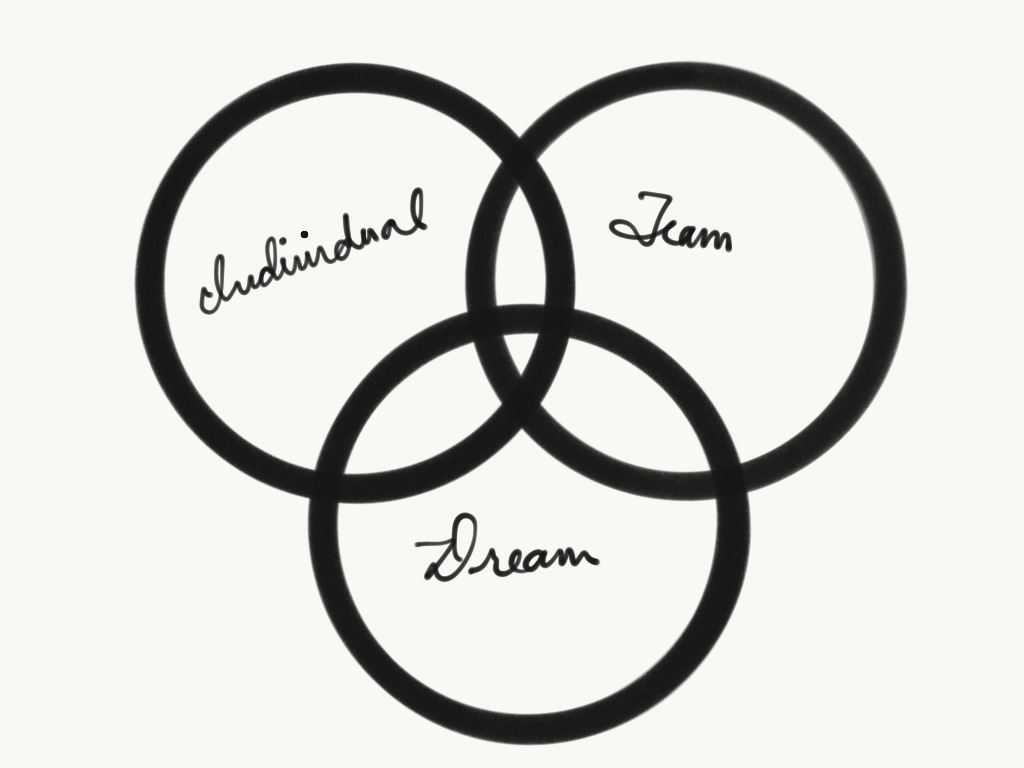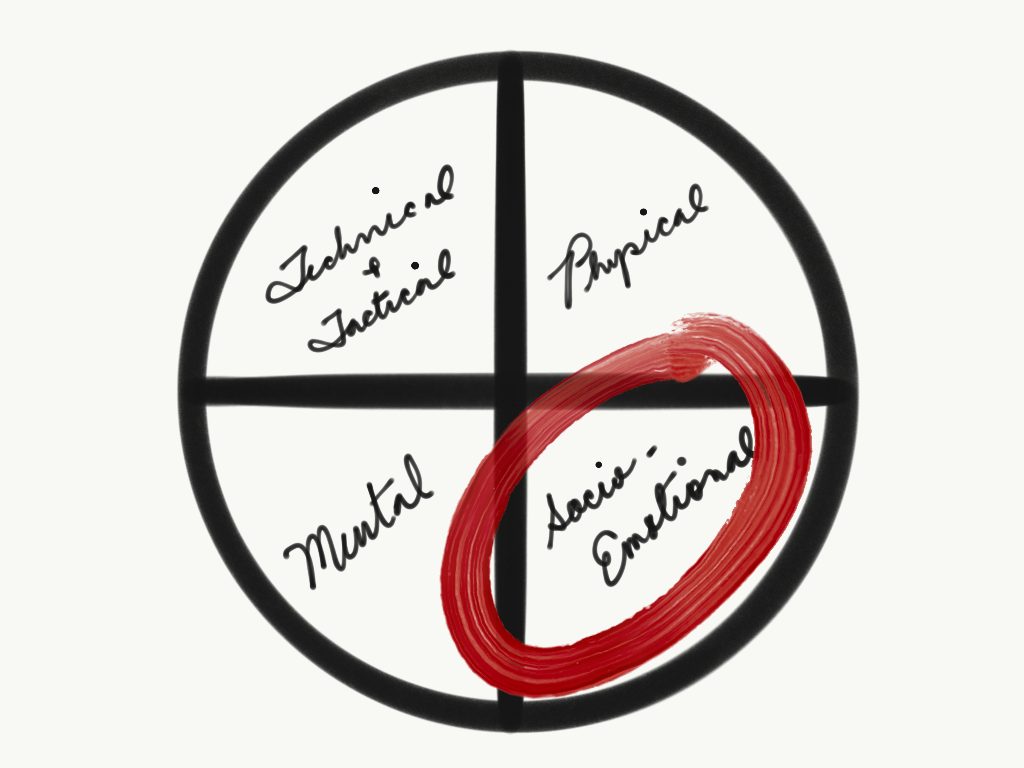A situation for you to consider: An athlete comes to you one week into the pre-season and says they are ready to quit the team citing homesickness, the stresses of school and figuring out life in a different city. You are the coach. How do you react?
I forgot to mention: this athlete is crucial to the success of your team this season. Losing him would significantly hinder your chances to make playoffs. Does that change things? Should it?
From the coaches perspective, any number of emotions would fit such a situation including anger, resentment, and anxiety. But what about the athlete?
“I was feeling pretty anxious about everything outside of basketball…The issues that people have to go through as a student, especially as anyone [who] knows being away from home and just, financial issues, everything else [in] combination is hard to manage…I was feeling more unsettled”
Based on the above quote, this particular athlete (henceforth referred to as Josh) was struggling at the start of the season.

Every team dynamic is influenced by 3 main aspects:
– Individual: the athletes, their unique personalities, and everything that makes them tick
– Team: the aggregation of every member of a particular team including coaches and staff
– Dreams: goals, as they apply to the team and individual athletes.
If any one aspect of this trinity is faltering, the whole team concept is at risk. Iis particular case, Josh was experiencing individual difficulties.

In order for an athlete to be a healthy member of a team, all 4 of the sub-categories listed above must be accounted for. For Josh, various aspects of his support structure were missing or less than ideal:
“…My living issues and just issues being away from home, I think that’s something I’ve had troubles dealing with in the past as well. Last season, just not being used to being away from home. My past, with the season last year being a bit underwhelming kind of made things harder, I kind of built some bigger walls around me”
Athletes are humans and sometimes, unfortunately, coaches tend to forget that. Josh was struggling to be away from his family, he was struggling with his living arrangement, and he was struggling with a lack of social connection. How is he supposed to be his best self on the court?
At the end of the day, every athlete has different needs. Meeting those needs can be the difference between a successful season and an underwhelming season. Individualized coaching is non-negotiable in the current high-performance climate. It was also the solution to Josh’s problems:
“Right now I am much more comfortable than I was at the start of the year. I think I’ve found myself to be in a better position with everything that I’ve faced and I think that what I was feeling at the start of the year is not as bad after actually living through it. Being able to figure everything out though being patience and perseverance helped a lot. Any time any changes happen, the biggest thing is being able to adjust”
Josh’s wisdom is profound. The ability to adjust is indeed the biggest thing for players and coaches alike. As a coaching staff we adjusted to Josh’s situation by meeting his needs irregardless of the fact that he was being treated differently than his teammates. For example, in situations where we could get Josh one more day at home before a break in our season, we would allow him to miss a practice. In a high-performance environment this might sound foolish. The athlete needs to train, the team needs to be together, it will create dissention within the ranks…yes, all of those are potential ramifications but fair isn’t equal and for Josh, we found this made him a better teammate, a better student, and a better player for us:
“Interactions with Coach Jackson were very much needed. Him being one of the people I trusted with the coaching staff and just in general, he was someone I relied on and I knew that with him I could kind of get a clear view of what to do and I feel like just being able to have someone to be open with about your current situation and struggles, instead of just keeping it into yourself can just make things a lot of things more clear and help you with a lot of your decisions”
For me, basketball is a vehicle through which you develop as a person. The process Josh undertook in order to grow through his struggles will serve him for the rest of his life. I am thankful I was able to be a part of it.
TL;DR – Josh was struggling personally. We figured out why and adapted to meet his needs as a human being by giving him opportunities his teammates didn’t necessarily have. It helped him become a better teammate, student, and basketball player. Fair isn’t equal and that is ok!
JP

This is a great example of what university coaches deal with all the time!
We have had similar issues, to the point that an athlete had to stay at my house for a week because of some struggles they had.
At the end of the day no matter how integral they are to the team, you made the right choice by treating them as a human first and athlete second, its stuff like this that provides great culture, athletes trusting you as a coach for having their best in mind. This in turns helps your athletes grow, and perform, but also intangible helps recruiting, as when a recruit is visiting and chatting with your athletes they can say many more positive things.
One of my sayings is think long term win short term. If we are always thinking bout the long term health and well being of every part of our program and athletes we will be better in the short term and after years of doing it the right way a culture and expectation comes forward that allows your team to thrive!
Keep up the great work pal!
Jackson, a fantastic reflection and great evidence! The recordings are nice because you can here how he is feeling. I like the link to the GMP and have seen the emotional quadrant also expressed as lifestyle. I think this is a huge performance factor and is something the HP sport system is trying to address with the Game Plan program. https://mygameplan.ca (Not Canada Basketball’s game plan, but Canadian Olympic committee). I think that athletes are much more confident when they have strong foundations of life to support their sport. There is also a lot of identity wrapped up in their sport which sometimes counteracts life style choices. For example, “I am who I am because of sport” or “I am my sport”. This may place some barriers in other important areas of life, where because of the sport identify is so strong, other areas of a well rounded lifestyle may suffer. It is good that you are addressing the other areas of the athlete’s life as this will have an impact on on-court performance.
Great story Jackson. I think we always have to take aside results and think for the team and the individual health.
How was Josh teammates reaction when you were giving the extra day off at home? How you were able to approach this situation? Because if you explained it well, they would understand if and support him as much as possible and have more faith in the coaching staff.
I like the recording because you can see the progress of your athlete and show also what was his toughts at the beginning of the season.
Your article just helped me to write my next blog! Little clue: You are a great listener.
Thanks Coach Parker!
University Sport is so much more than X’s and O’s. The importance of relationships between athletes and coaches is instrumental in providing then environment for athletes to flourish. Another topic to consider is the different roles of coaches within a staff. Josh was unwilling to express these same feelings to the head coach even though he knew the head coach would find out through Jackson. Having multiple people for athletes to communicate to and through is essential to identify and relieve the stresses that impact performance.